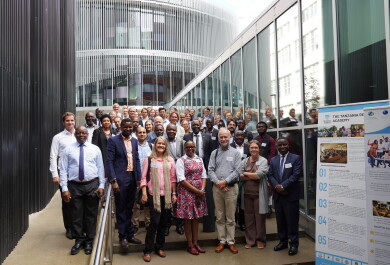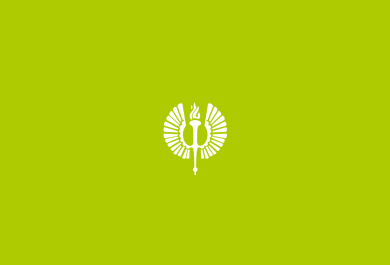The GEOICT4e project develops e-learning methods to educate geospatial experts for future digital labour markets. Remote learning, also known as e-learning, plays an important role in e.g. the MOOC courses that are teaching practical skills for solving real societal problems or challenges.
The GeoICT4e project coordinated by the Department of Geography and Geology at the University of Turku is focused on reforming geospatial and ICT education in Tanzanian higher education institutions (HEIs). The aim of the project is to develop active participation in education using the challenge-based learning (CBL) method.
The project produces Massive Open Online Courses (MOOCs) that are open to everyone as a pathway to the so-called challenge campaigns, which have a significant role in the project.
– The MOOCs help the students do well in the campaigns, as the campaigns might require competences that their own higher education institution has not been able to provide. The courses support learning before the campaign or during it, explains Romi Rancken, Senior Lecturer in Geospatial Education from Novia University of Applied Sciences.
In February 2021, the project started the Training of the Trainers sessions for university teachers and researchers. These sessions will improve the competence of the Finnish and Tanzanian experts on modern pedagogy as well as different thematic skills. These skills include e.g. knowledge and handling of digital geospatial data, sustainable development, climate change, innovations, and entrepreneurship.
– We will be providing assistance on these subjects on a regular basis. The subjects to be discussed will be depending on the stage of the project and the type of support that experts need in their work, Rancken says.
The participants of the project include altogether eight higher education institutions from Finland and Tanzania. The team consists of over 50 experts of geography, entrepreneurship and innovations, pedagogy, and sustainable development. The four-year project is funded by the HEI ICI programme. HEI ICI Programme is financed by the Ministry for Foreign Affairs of Finland and administrated by the Finnish National Agency for Education (EDUFI).
New Opportunities for Flexible Remote Studying through Online Courses
The project develops MOOCs that can also be offered completely separate from the actual curriculum, for example as optional courses. The higher education institutions can later integrate the MOOCs into their own curriculums.
– We can also improve the existing courses in the partner universities by developing new methods and content in the form of MOOCs, says Rancken.
The team is now planning 40–50 so-called mini MOOCs. Mini MOOCs are short courses in which the amount of work varies from one day to a week.
– In the training session organised in February, we reminded ourselves about what competence-based education actually is, and what kind of requirements it imposes on planning the courses. We also discussed about the type of planning model needed to make the planning work easier. Now, the planning model is beginning to be ready to be tested, says Rancken.
Since the objectives of the project include establishing the sustainability issues of society and finding solutions to them by using e.g. geospatial information, the campaigns require mobility and information also from areas where there are no computers.
– In these scenarios, it is very useful to utilise mobile learning, which is an increasingly important form of e-learning, Rancken explains.
The project aims to improve the employment of young HEI graduates who have expertise in geospatial information and ICT on the increasingly digitalised labour markets as well as encourage them to participate in the innovation activities and entrepreneurship in their field.
– We believe that as learning methods, e-learning, open mini learning contents, and challenge-based learning provide a better foundation for the young people’s ability to survive and help others in the modern world. If the HEI students succeed in capitalising the learning methods learned during the project, they will also have much higher chances of becoming life-long, independent learners capable of recognising and marketing their own competence.
Various Workshops Launched the Project
The University of Turku has collaborated with Tanzanian universities already for decades. The strategic work related to educational development has been a success.
In December, the team organised a two-day kick off workshop in Tanzania with the aim of getting to know the team and learning who to ask for help in different kinds of questions related to innovations and synergy. The workshop also included discussion on the pedagogy of challenge-based learning as well as forming a shared view on the concept of MultiCompetenceLearning, which will be developed in the project.
On the second day, the participants also discussed the perspectives of sustainable development, human rights, and ethical questions in the project. These are all important, cross-sectional themes in all of the projects included in the HEI ICI programme.
The kick-off workshop also included visits to the partner universities where the team received positive feedback.
– According to the university management, the project was launched at the right time, as the Tanzanian government finds it strategically important to invest in ICT expertise, and our university is also pushing towards using ICT in addressing societal challenges. We are also putting emphasis on online learning which allows more students to access the learning materials, says Dr. Mercy Mbise from the University of Dar es Salaam.
– The meeting strengthened the relationships between the universities. It helped to increase understanding of the project’s importance, thus strengthening everyone’s commitment to it, says Dr. Zakaria Ngereja, from the Ardhi University.
The Higher Education Institutions Institutional Cooperation Instrument (HEI ICI) supports cooperation projects between higher education institutions in Finland and the developing world. The projects support the HEIs as they develop their subject-specific, methodological, educational, and administrative capacity. The programme is funded by the Ministry for Foreign Affairs of Finland and administered by the Finnish National Agency for Education.


